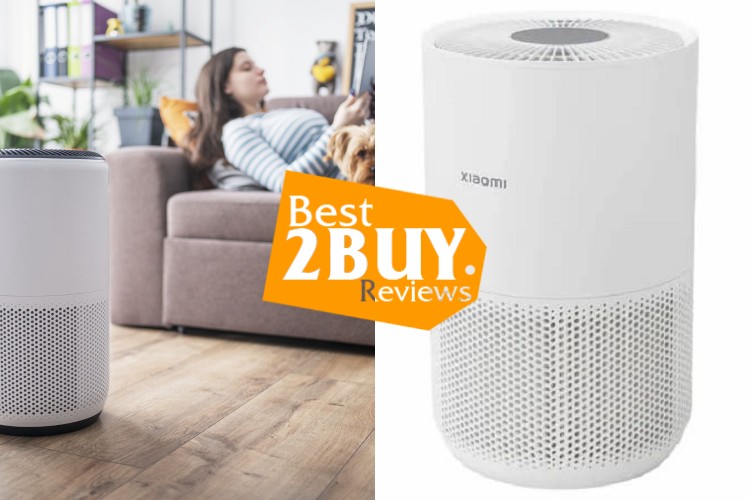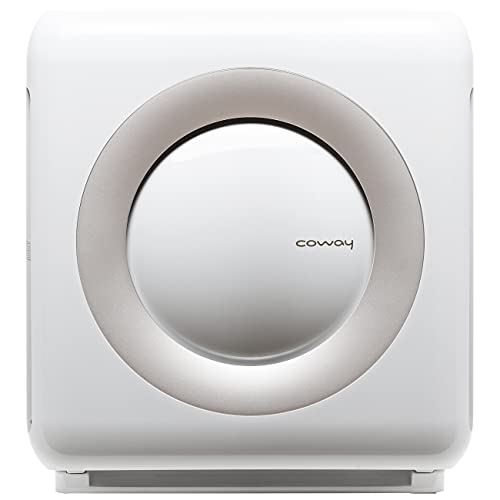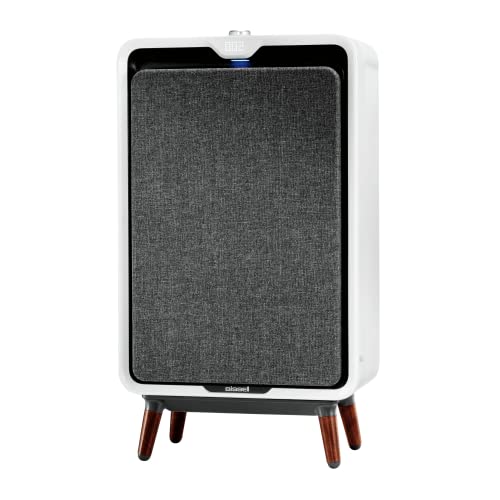How to Choose the Air Purifiers
Air purifiers are devices designed to improve indoor air quality by removing pollutants, allergens, and other harmful particles from the air. They are commonly used in homes, offices, and other indoor spaces to create a healthier and more comfortable environment. Air purifiers work by drawing in air from the surrounding environment, passing it through various filtration systems, and then releasing the purified air back into the room.
- 1. Types of air purifiers
- 1.1. High-Efficiency Particulate Air (HEPA) Filters
- 1.2. Activated Carbon Filters
- 1.3. Ionizers
- 1.4. UV-C Light Purifiers
- 1.5. Ozone Generators
- 2. Why should buy Air Purifiers?
- 2.1. Improved Indoor Air Quality
- 2.2. Allergy and Asthma Relief
- 2.3. Respiratory Health
- 2.4. Smoke and Odor Removal
- 2.5. Pet Owners
- 2.6. Better Sleep
- 2.7. Protection Against Airborne Illnesses
- 2.8. Healthier Home Environment
- 2.9. Enhanced Productivity
- 2.10. Smog and Outdoor Pollution
- 3. Tips for choosing Air Purifiers
- 3.1. Identify your specific needs
- 3.2. Check the Clean Air Delivery Rate (CADR)
- 3.3. Consider the room size
- 3.4. Look for a High-Efficiency Particulate Air (HEPA) filter
- 3.5. Check for additional filters
- 3.6. Noise level
- 3.7. Energy efficiency
- 3.8. Filter replacement and maintenance
- 3.9. Certifications
- 3.10. Reviews and customer feedback
- 3.11. Warranty
- 3.12. Consider additional features
- 4. In Conclusion
Types of air purifiers
The main types of air purifiers are:
High-Efficiency Particulate Air (HEPA) Filters
HEPA filters are highly effective at capturing particles as small as 0.3 microns in size, including dust, pollen, pet dander, and some bacteria. They are considered one of the most efficient types of filters for air purification.
Activated Carbon Filters
Activated carbon filters excel at removing odors, smoke, and harmful gases from the air. The activated carbon has a porous structure that traps and absorbs these pollutants.
Ionizers
Ionizers release negatively charged ions into the air, which attach to positively charged particles like dust and allergens. This causes the particles to clump together and fall out of the air, effectively removing them from the breathing space. Some ionizers also include collector plates to capture these particles.
UV-C Light Purifiers
UV-C light is used to kill bacteria, viruses, and other microorganisms by damaging their DNA. This type of air purifier is often combined with other filtration systems to provide a more comprehensive purification process.
Ozone Generators
Ozone generators produce ozone (O3), which can eliminate odors and kill bacteria and mold. However, ozone can be harmful to humans when present in high concentrations, so these devices are less commonly used and often require caution.
When choosing an air purifier, consider the size of the room you want to purify and the specific pollutants you want to target. Look for products that are independently tested and certified by organizations like the Association of Home Appliance Manufacturers (AHAM) or the U.S. Environmental Protection Agency (EPA).
Regular maintenance of air purifiers, such as replacing filters according to the manufacturer's recommendations, is essential to ensure their effectiveness. Additionally, air purifiers work best when combined with good ventilation practices and general cleanliness in your living or working space.

Why should buy Air Purifiers?
There are several compelling reasons why you might consider buying an air purifier:
Improved Indoor Air Quality
Indoor air can be more polluted than outdoor air, especially in spaces with limited ventilation. Air purifiers can effectively remove pollutants such as dust, pollen, pet dander, mold spores, smoke, volatile organic compounds (VOCs), and other harmful particles, leading to cleaner and healthier air indoors.
Allergy and Asthma Relief
For people with allergies or asthma, air purifiers can be particularly beneficial. They can help reduce allergens in the air, providing relief from symptoms like sneezing, coughing, wheezing, and itchy eyes.
Respiratory Health
Even for individuals without specific allergies, air purifiers can contribute to better respiratory health by reducing exposure to airborne pollutants that can irritate the respiratory system and cause discomfort or potential long-term issues.
Smoke and Odor Removal
Air purifiers with activated carbon filters are effective at removing smoke and odors from cooking, pets, or other sources, making your living space more pleasant and fresh.
Pet Owners
If you have pets, their dander and hair can circulate in the air, leading to allergy symptoms for some people. Air purifiers can help mitigate this issue by capturing pet-related allergens.
Better Sleep
Cleaner air can improve sleep quality, as it reduces potential irritants that might disrupt sleep and lead to discomfort during the night.
Protection Against Airborne Illnesses
Air purifiers equipped with UV-C light or other germicidal technologies can help inactivate or kill airborne viruses and bacteria, potentially reducing the spread of infectious diseases.
Healthier Home Environment
By purifying the air, you create a healthier living environment for you and your family, especially if you spend a significant amount of time indoors.
Enhanced Productivity
In an office or workspace, better air quality can lead to increased productivity, reduced absenteeism due to illnesses, and a more comfortable and pleasant working atmosphere.
Smog and Outdoor Pollution
In areas with high levels of outdoor pollution or smog, air purifiers can help mitigate the impact by removing some of the pollutants from indoor air.
Remember that while air purifiers can significantly improve indoor air quality, they should be seen as part of an overall approach to a healthy living environment. Regular cleaning, proper ventilation, and reducing the use of products that release harmful chemicals are also crucial steps in maintaining a healthy indoor environment.
Tips for choosing Air Purifiers
When choosing an air purifier, consider the following tips to ensure you select the most suitable one for your needs:
Identify your specific needs
Determine the primary pollutants you want to target, such as dust, allergens, smoke, odors, or pet dander. Different air purifiers are designed to address specific types of pollutants.
Check the Clean Air Delivery Rate (CADR)
The CADR rating indicates the volume of clean air that the purifier can deliver per minute. Look for a higher CADR value, as it indicates better performance in cleaning the air.
Consider the room size
Choose an air purifier that is appropriate for the size of the room you want to purify. Look for the purifier's recommended room size in the product specifications.
Look for a High-Efficiency Particulate Air (HEPA) filter
HEPA filters are highly effective in capturing small particles, making them ideal for allergy and asthma sufferers. Make sure the air purifier you choose has a true HEPA filter, as it can remove particles as small as 0.3 microns with high efficiency.
Check for additional filters
Some air purifiers have multiple filtration stages, including pre-filters for larger particles, activated carbon filters for odors and gases, and UV-C or ionizers for germ elimination. Consider these extra features if they match your requirements.
Noise level
Look for information on the noise level of the air purifier, especially if you plan to use it in bedrooms or quiet spaces. Some air purifiers have multiple fan speed settings, which can affect noise levels.
Energy efficiency
Choose an air purifier that is energy-efficient to minimize its impact on your electricity bills.
Filter replacement and maintenance
Check the cost and frequency of filter replacements. Regular maintenance is crucial for optimal performance, so ensure that replacement filters are readily available and not overly expensive.
Certifications
Look for air purifiers that are independently tested and certified by reputable organizations like AHAM (Association of Home Appliance Manufacturers) or Energy Star. These certifications validate the purifier's performance claims.
Reviews and customer feedback
Read reviews and customer feedback to gain insights into the real-world performance and reliability of the air purifier you are considering.
Warranty
Check the warranty offered by the manufacturer to ensure you are protected against any defects or malfunctions.
Consider additional features
Some air purifiers come with convenient features like smart controls, air quality sensors, auto modes, and timers. Assess whether these additional features align with your preferences and lifestyle.
By considering these factors, you can find an air purifier that best suits your needs and provides you with cleaner and healthier indoor air.
In Conclusion
Air purifiers are essential devices for maintaining a healthy and safe environment in your home or office. They help to remove dust, pollen, pet dander, smoke, and other impurities from the air, as well as small cells like bacteria and viruses with the help of filters. There are air purifiers that are designed to remove specific contaminants, while others are designed to provide more general air purification.
If You are finding an air purifiers for your house, consider Amazon to have options and promotions. All of products in Amazon have been evaluated by user and experts. Besides, you can check out our website top air purifiers in Makets. We reviews and recommend basing on the quality, value for money, Storage capacity, noise level, durability,… you will have overview and give final decision.










